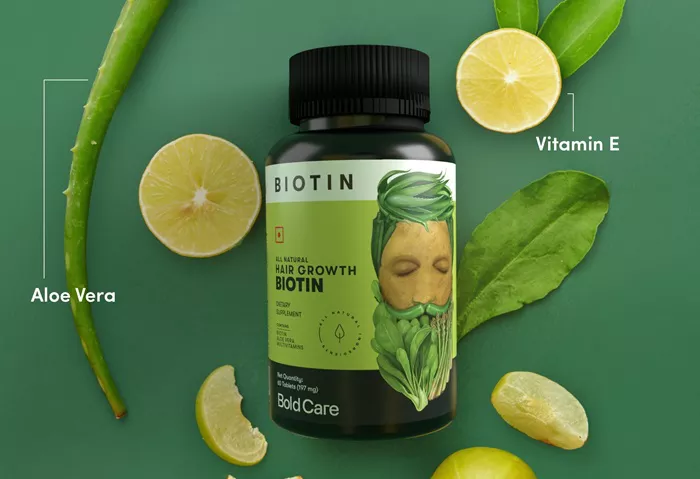Hair loss or thinning hair can be frustrating. Many people turn to tablets (oral supplements) to support hair growth. But with so many options, it’s hard to know what works. This guide breaks down the best tablets for hair growth, how they work, and what to consider before trying them.
Understanding Hair Loss: Common Causes
Before discussing solutions, let’s explore why hair loss happens:
- Genetics: Hereditary hair loss (androgenetic alopecia) is the most common cause.
- Hormonal Changes: Pregnancy, menopause, or thyroid issues can trigger thinning.
- Nutrient Deficiencies: Low iron, zinc, or vitamins weakens hair.
- Stress: Physical or emotional stress pushes hair into a “resting phase,” causing shedding.
- Medical Conditions: Autoimmune diseases (like alopecia areata) or scalp infections.
- Medications: Chemotherapy, blood thinners, or antidepressants may cause hair loss.
Tablets can help if your hair issues stem from nutrient gaps or hormonal imbalances.
Key Nutrients for Hair Growth
Hair follicles need specific nutrients to stay healthy. Below are the most important ones and how they work.
Biotin (Vitamin B7)
- Role: Helps produce keratin (hair’s main protein).
- Dosage: 2.5–5 mg daily. Higher doses are safe but avoid exceeding 10 mg.
- Food Sources: Eggs, nuts, salmon, sweet potatoes.
- Evidence: Studies show biotin improves thickness in people with deficiencies. No proven benefits if levels are normal.
- Side Effects: Rare. May interfere with lab tests (e.g., thyroid tests).
Vitamin D
- Role: Activates hair follicles. Low levels link to alopecia.
- Dosage: 600–800 IU daily. Deficiency may require 1,000–2,000 IU.
- Food Sources: Sunlight, fatty fish, fortified milk.
- Evidence: Correcting deficiency may reduce shedding.
- Side Effects: Overdose causes nausea (stick to recommended doses).
Iron
- Role: Carries oxygen to hair follicles. Iron-deficiency anemia causes hair loss.
- Dosage: 18 mg (women) or 8 mg (men) daily. Higher doses require a doctor’s advice.
- Food Sources: Red meat, spinach, lentils.
- Evidence: Improves hair growth in anemic individuals.
- Side Effects: Constipation, stomach pain.
Zinc
- Role: Repairs hair tissues and supports oil gland function.
- Dosage: 8–11 mg daily. Excess zinc (over 40 mg) harms immunity.
- Food Sources: Oysters, beef, pumpkin seeds.
- Evidence: Low zinc links to telogen effluvium (excessive shedding).
- Side Effects: Nausea, metallic taste.
Omega-3 Fatty Acids
- Role: Reduces scalp inflammation and adds shine.
- Dosage: 250–500 mg of combined EPA/DHA daily.
- Food Sources: Fish, flaxseeds, walnuts.
- Evidence: Reduces hair thinning in small studies.
- Side Effects: Fishy aftertaste, mild digestive issues.
Collagen
- Role: Strengthens hair structure and antioxidant support.
- Dosage: 2.5–15 g daily.
- Food Sources: Bone broth, chicken, gelatin.
- Evidence: May boost hair thickness, but research is limited.
- Side Effects: None reported.
Other Supplements
- Vitamin A: Supports sebum production (don’t exceed 10,000 IU—toxic in excess).
- Vitamin E: Antioxidant; 15 mg daily.
- Selenium: Protects follicles (55 mcg daily; avoid overdosing).
Prescription Tablets for Hair Growth
For severe cases, doctors may prescribe:
Oral Minoxidil
- Role: Boosts blood flow to follicles (originally a blood pressure drug).
- Dosage: 0.25–5 mg daily.
- Effectiveness: Promotes regrowth in 6–12 months.
- Side Effects: Dizziness, heart palpitations, facial hair growth.
Finasteride
- Role: Blocks DHT (hormone causing male pattern baldness).
- Dosage: 1 mg daily.
- Effectiveness: 90% of men see slower loss; 65% regrow hair.
- Side Effects: Low libido, not safe for pregnant women.
Spironolactone
- Role: Reduces androgens in women (prescription-only).
- Dosage: 50–200 mg daily.
- Effectiveness: Slows thinning in hormonal hair loss.
- Side Effects: Frequent urination, dizziness.
How to Choose the Right Tablet
- Identify the Cause: Blood tests can reveal deficiencies or hormonal issues.
- Check Ingredients: Avoid mega-doses. Look for USP or NSF certifications.
- Combination Formulas: Many hair growth tablets mix biotin, zinc, and vitamins.
- Consult a Doctor: Especially for prescriptions or if you have health conditions.
Lifestyle Tips to Boost Results
- Eat Protein-Rich Foods: Hair is made of protein. Add eggs, beans, and lean meats.
- Manage Stress: Try yoga, meditation, or walking.
- Avoid Heat/ Chemicals: Limit dyes, straighteners, and hot tools.
- Gentle Hair Care: Use sulfate-free shampoos and soft brushes.
When to See a Doctor
- Sudden or patchy hair loss.
- Itching, pain, or redness on the scalp.
- No improvement after 6 months of supplements.
Conclusion
Tablets can help hair growth by filling nutrient gaps or balancing hormones. Biotin, iron, and omega-3s are popular choices, while prescriptions like finasteride target genetic hair loss. Pair supplements with a healthy diet and gentle hair care. Always consult a doctor to rule out underlying issues. Remember, results take time—consistency is key!
Related topics:
10 Most Effective Biotin Tablets for Hair Growth
Top 5 Vitamin Tablets for Hair Growth: A Full Guide
What Tablets Help Hair Growth: A Comprehensive Guide


